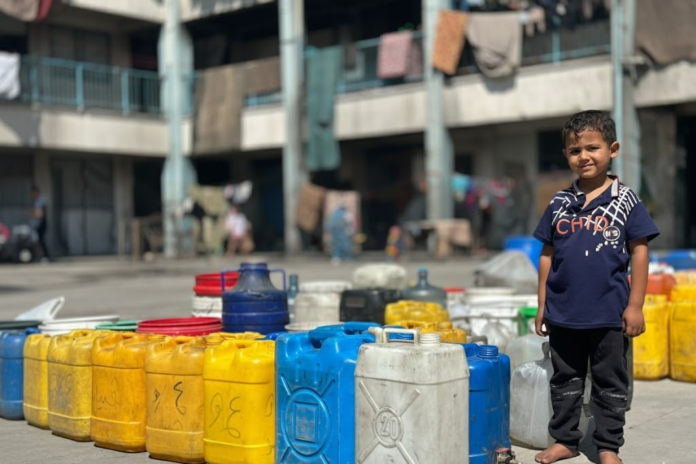The ongoing conflict between Israel and Hamas has led to significant concerns regarding ecological collapse and public health risks in the Gaza Strip. As military operations intensify, experts warn that the environmental impact could have long-lasting effects on the region’s health and sustainability.
The war, which escalated in recent months, has resulted in widespread destruction of infrastructure, including water treatment facilities, hospitals, and waste management systems. According to the Gaza Ministry of Health, the destruction of these essential services has left many residents without access to clean water and adequate healthcare, leading to a rise in waterborne diseases and other health complications.
Environmental organizations have reported that the conflict has exacerbated existing issues related to pollution and waste management in Gaza. The blockade imposed on the region has severely limited the import of necessary materials for rebuilding and maintaining infrastructure. As a result, untreated sewage is being discharged into the Mediterranean Sea, posing a risk to marine life and the health of those who rely on fishing for their livelihoods.
Dr. Ahmed Al-Azzeh, an environmental scientist based in Gaza, stated, “The current situation is dire. The combination of military actions and the blockade has created a perfect storm for ecological collapse. We are witnessing an increase in health risks that could affect generations to come.”
The World Health Organization (WHO) has expressed alarm over the deteriorating health conditions in Gaza. Reports indicate that hospitals are overwhelmed with casualties from the conflict, while routine medical care for chronic conditions has been severely disrupted. The lack of medical supplies and personnel has further complicated the situation, leading to increased mortality rates from preventable diseases.
In addition to immediate health risks, experts are concerned about the long-term implications of environmental degradation. Soil contamination from military operations and the destruction of agricultural land threaten food security in a region that already struggles with high levels of poverty and unemployment. The United Nations has warned that the ongoing conflict could lead to a humanitarian crisis that extends beyond immediate violence, affecting the health and well-being of the population for years to come.
The impact of the conflict on mental health is also a growing concern. The psychological toll of living in a war zone, combined with the stress of environmental degradation and health risks, has led to increased rates of anxiety, depression, and post-traumatic stress disorder (PTSD) among the population. Mental health professionals in Gaza report a surge in demand for psychological support services, which are already stretched thin due to the ongoing crisis.
International humanitarian organizations are calling for an immediate ceasefire to allow for the delivery of aid and the restoration of essential services. They emphasize the need for a coordinated response to address both the immediate health needs and the long-term environmental challenges facing Gaza.
As the conflict continues, the potential for ecological collapse looms large, with experts warning that the consequences of inaction could be catastrophic. The situation in Gaza serves as a stark reminder of the interconnectedness of conflict, health, and the environment, highlighting the urgent need for comprehensive solutions that prioritize the well-being of the population and the sustainability of the region.
In conclusion, the war in Gaza has not only resulted in immediate humanitarian crises but has also set the stage for a potential ecological disaster. Addressing these challenges will require concerted efforts from local and international stakeholders to ensure the health and safety of the population and the preservation of the environment.




















